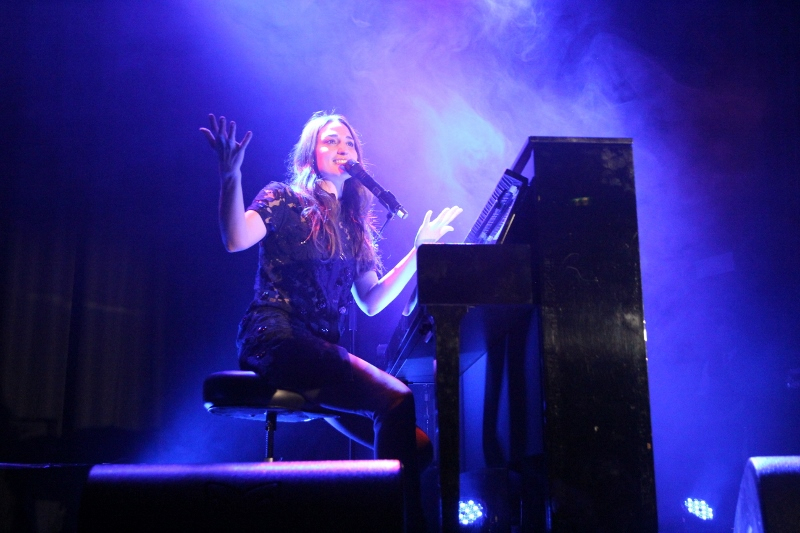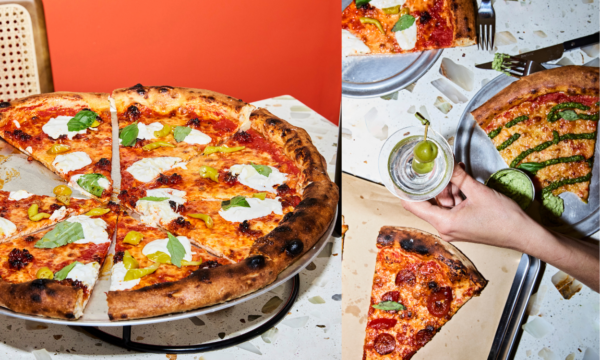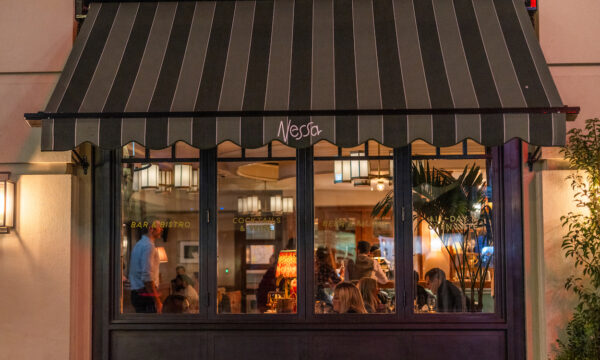Interview: Sara Bareilles gives us the inside scoop

Widely celebrated singer-songwriter Sara Bareilles was this year once again the recipient of a Grammy award, this time for new album, The Blessed Unrest, which is currently touring the US. She chatted to us about her music and her take on life and success.
You cite Elton John as a major influence on your music. What drew you to him and which of his songs has inspired you most?
My dad had Elton’s records and I just loved them from the get-go. The personality of the piano in the music is so steady, so raw and strong. The melodies feel familiar immediately and somehow take you on a journey you might not be expecting. I remember Goodbye Yellow Brick Road as being one of the songs that struck me from a very young age. So interesting to take in the lyrics of as an adult, as they are actually quite melancholy to me, but the melody grabbed me as a little girl and I have loved that song ever since.
In a live setting your songs seem more experimental and span a greater range of genres than when recorded – is this a conscious decision?
Live shows are a wonderful playground to explore stylistically. I think people forget that recordings are a snapshot only; the songs have an entire life to expand and breathe and take on different personalities. It’s one of my greatest joys to arrange and play with the bones of a song for the show. And there is simply no substitute for the energetic component for a live audience in the room – it changes everyone’s experience, from the listener to the performer.
Your live version of Come Round Soon was breathtaking at the Islington Assembly Hall, have you any plans to record or develop more music with a blues feel to it?
Thank you so much! I have always loved music that is rootsy and bluesy and I would love to take on a project that would allow for more of that. So, yes, I would absolutely consider that.
Come Round Soon also sounds very different and more mature in a live setting in comparison to its recorded version. Have the meanings of your songs changed for you over time and altered the way you play them?
Absolutely. I wrote Come Round Soon when I was only 20 years old. My world doesn’t even resemble the one in which that song was written. I think one of the beautiful parts of live music is that it can bend to fit an artist’s being as it develops and changes, shape-shifting together. It’s very free and exciting.
You’re best known for playing the piano but you use a range of instruments when playing live – has the piano always been your first port of call? Are you planning to expand your instrumentation?
I love the variety of picking of different instruments in my shows. The piano is by far my most comfortable instrument, but I’m learning and growing and becoming more comfortable with others as well.
 You said that writing the song Brave was very much a collaborative process between you and your close friend Jack Antonoff. Do you find song-writing easier as a collaborative rather than a solitary process?
You said that writing the song Brave was very much a collaborative process between you and your close friend Jack Antonoff. Do you find song-writing easier as a collaborative rather than a solitary process?
Every song and every process is very different, and my only job is to listen to what it wants. It just happens to feel very easy with Jack: I love him so much and I trust him implicitly. Sometimes certain people can help you hear it and get there faster. It’s a really special process when it’s working well.
You have a great dry, sarcastic sense of humour, yet you say that you have often suffered from bouts of depression. Has your humour been a coping mechanism for you and has it infiltrated into your music in any way?
I think humour is definitely a way to deflect and lighten up what feels heavy sometimes. I think so many people use it that way and I find it comforting, and a useful tool in keeping my overactive brain happy and healthy. Humour sneaks in in cheeky lyrics and irony in my music.
Some musicians prefer recording as opposed to touring as it allows them to be creative in their own private space. Do you feel the same or are the live shows equally as important to you?
I think they are both so valuable but are so very different. I think I tend to favour live shows for the immediacy of the experience. I love crafting music in a studio as well, but I seem to have less patience for it.
You’ve talked about the meanings of some of your songs and what encouraged you to write them. [Brave was inspired by a friend struggling with homosexuality, Hercules about finding strength amid depression.] Are all your songs inspired by specific experiences and people in your life, or do they sometimes have more ambiguous beginnings?
Most of my songs are autobiographical to a certain extent. I write what I know, and that’s really mostly just me and the people very close to me. Sometimes my songs take on a more general meaning and a more conceptual message, but I find that my strengths lie in articulating the details of an emotional experience.
Blessed Unrest has been a huge success, do you have any other plans on the horizon once this tour has come to an end?
I am hoping to get to Australia and potentially Asia on this record as well, and then I will get to work on what comes next, this time making sure to build in International plans from the very beginning.
If you had to give advice to a younger you, what would you it be?
Be exactly yourself. It’s the most interesting.
Alexandra Sims
Photos: Helen Parish
The Blessed Unrest is out now and features singles Brave and Chasing the Sun. For further information or to order the album visit Sara Bareilles’s website here.






















Facebook
Twitter
Instagram
YouTube
RSS